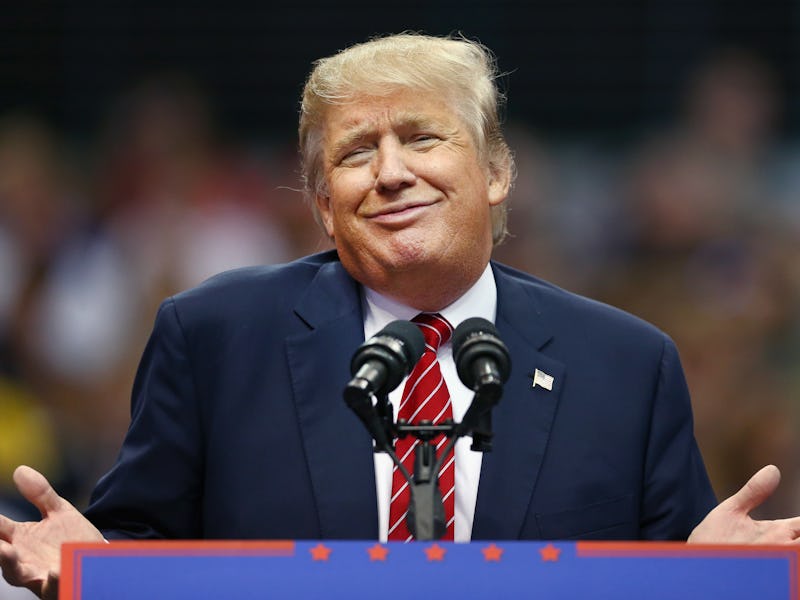'Scientific American' Makes Rare Political Endorsement
"We can only hope that there is nowhere to go but up."

It’s the season of political endorsements, but Scientific American, which released its first issue before the Civil War, has never done much in the way of them during its 170-year history. That changed today when its editors made a rare endorsement: It has chosen to support the principles of science over Donald Trump.
This election “shows how far the political conversation has degenerated from the nation’s founding principles of truth and evidence,” the magazine’s editors write, and “takes antiscience to previously unexplored terrain.”
It’s not even that we don’t know how Trump will treat institutions like NASA or the answers to 20 questions about their field. The problem, at least according to Scientific American, is that Trump has no respect for basic facts.
“When the major Republican candidate for president has tweeted that global warming is a Chinese plot, threatens to dismantle a climate agreement 20 years in the making and to eliminate an agency that enforces clean air and water regulations, and speaks passionately about a link between vaccines and autism that was utterly discredited years ago,” the editors write in their endorsement of science over Trump, “We can only hope that there is nowhere to go but up.”
Here are some of the tweets to which the editors refer. First, global warming:
Then a link between vaccines and autism:
Other references, like Trump’s desire to dismantle the Environmental Protection Agency require more than a tweet to summarize. But the sentiment is clear: Trump is, to put it mildly, not a scientist.
That puts him at odds with America’s founders, as Scientific American explains:
Americans have long prided themselves on their ability to see the world for what it is, as opposed to what someone says it is or what most people happen to believe. In one of the most powerful lines in American literature, Huck Finn says: “It warn’t so. I tried it.” A respect for evidence is not just a part of the national character. It goes to the heart of the country’s particular brand of democratic government. When the founding fathers, including Benjamin Franklin, scientist and inventor, wrote arguably the most important line in the Declaration of Independence—‘We hold these truths to be self-evident’—they were asserting the fledgling nation’s grounding in the primacy of reason based on evidence.
And thus a new bar for presidential endorsements is born. Ask not what a politician can do for the country; ask whether or not Huck Finn and Benjamin Franklin would agree that this person is right for the job. Scientific American might not endorse candidates often, but at least it’s entertaining when it does.